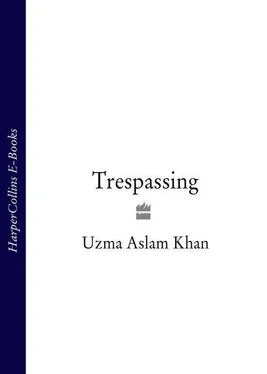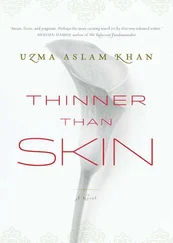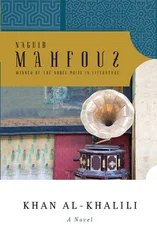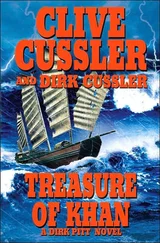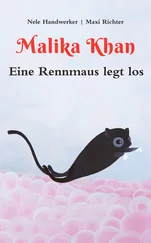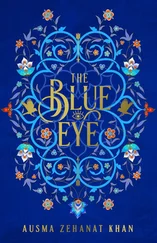‘You will go to the city and gradually, the rest will follow.’ Then she looked at him. ‘Beware the strangers. Hold them at arm’s length. Good luck, my son.’
He glanced up at the moon, textured like a turtle’s egg, like the one he’d tried to save. He’d watched turtle hatchlings long enough to know their first journey to the sea was made all alone, purely by instinct. Their mother would depart when all her eggs were laid and never return. The fishermen said only one in a hundred hatchlings survived the perils that awaited them, and if the survivor were female, years later, she’d return to her birthplace, to lay her own eggs. He pulled a wet curl away from his eyes and wondered what happened to the males.
APRIL — JUNE 1984
He learned new words fast. Sand was replaced by granite, mud with cement, fish with scraps of rubbery mutton, and that too on good days. He smelled no salt in the air, only smoke and gases that made his chest burn. The moon was dimmed by lights a thousand times brighter than those the trawlers had burned. The brightest were for weddings: little colored bulbs strung from trees and rooftops. An entire house could light up like a private galaxy. Women did not sit outside homes, wedding or not, smoking. At first, he barely saw any at all. And there were ways to cross the rivers of asphalt without being hit by wheels.
For days after entering the city Salaamat sat on roadsides watching, stunned by the variety of wheels. On the beach, he’d seen weekend visitors ride down the shoreline on motorcycles, but he’d never known how many kinds of vehicles there could be. Now here they were, whizzing by him, vehicles each with names he longed to know. At a paan and tea stall (the tea was wretched but he learned to drink it) that hired him, he asked regulars to teach him. While painting the paan leaves with betel juice, he timidly repeated: Nissan, Honda, Suzuki, Toyota. It helped him forget how differently those around him spoke. Here he was not merely half-deaf but half-dumb. Avoiding speech, he quietly studied how the car models changed depending on the year, and formed opinions on which color best suited each style.
But what he loved most were the buses. He accidentally said so one day. The customers laughed, sucking on supari. ‘Every man dreams of having a car and you dream of buses!’
He explained his tastes to no one.
The buses were decorated as lavishly as boats for the annual fair at his village. They were boats that rocked on a solid sea. He studied the designs, drank the rich colors, memorized the names of the shops that made them, all in Qaddafi Town. He learned this was near the eastern outskirts of the city and as soon as he’d saved enough money, Salaamat hopped on to one such bus.
The interior was pink and gold, and in each corner was a different picture: fish dancing; storks wading; a lofty crown; parrots with girlish eyes, preening. The tranquility of each scene contrasted with the activities of the commuters, who spat paan juice everywhere, extinguished cigarettes on fish fins, blew their noses on crown jewels. The sea salt he’d been unable to smell since coming here ate into the paint and left the interior crusted with rust. The bus shook with its load; five men hung from each of its doors and many more stood on the fenders, thumping the bus when it was time to jump off. Salaamat kept asking the conductor for Qaddafi Town. Finally, the man grabbed his kurta cuff and pushed him out.
Knees wobbling, Salaamat entered the first bus workshop he passed. It was called: Handsome Body Maker.
Seven buses were parked inside, in various stages of construction. A large man stepped out of an office, gruffly asking what he wanted.
‘I … I want work,’ Salaamat replied.
The man turned toward the office, shouting something incomprehensible. Two others appeared. The mighty one, who was Handsome, opened his palm and shook it rudely under Salaamat’s chin. ‘Wah! We should thank the Almighty the foreigner has come to us!’
Only one of the others, bald as an egg, laughed. Touching Salaamat’s locks he said in a high-pitched voice, ‘A pretty boy like you should have no problem finding work.’ He turned to Handsome, adding, ‘You are Handsome but he is Pretty.’
‘But he’s so dark,’ protested the rose-cheeked Handsome between chuckles.
‘It’ll rub off!’ said the bald man.
The third man was the smallest. He had a thin mustache and heavily oiled hair, and as yet had not cracked a smile. He squinted, ‘Where are you from?’
Salaamat tossed his head proudly and named his village.
‘A machera!’ the skinny man sneered. ‘No wonder he’s black.’
‘There are no fish here, meri jaan,’ said the bald man, wagging a finger. ‘Of course, if you’re clever, you can catch other things.’
Salaamat cleared his throat. ‘I’m clever and can learn a new trade. I ask only for food and lodging and will work as many hours as you need me to.’
The men looked at each other. Handsome said, ‘For an ajnabi, you speak confidently.’
The bald man again fondled Salaamat’s locks. ‘Keep him. He speaks well.’
Handsome smacked his back and declared, ‘Then, Chikna, I’ll let you decide what to do with him.’
The skinny man interjected. ‘We can’t allow an ajnabi in here.’
‘Since when have you owned this place?’ Handsome retorted.
The skinny man said nothing, but Salaamat understood his gaze. This was the one to watch.
There were four doors behind the buses. Toward these Chikna now led him. Pointing to the small bundle in Salaamat’s hand, he asked, ‘Is that all you have?’
Salaamat nodded, looking closely for the first time at the seven buses. He stared, trying to understand their progression from one stage to the next. The first was just a skeleton — a brown mass of metal plates with four wheels. But the last was a glinting gem.
‘That’s called a chassis,’ Chikna pointed to the first. ‘The bus owner gives us that and we do the rest.’ After a pause, he added, ‘How old are you?’
‘About seventeen.’
Chikna shrugged. ‘I’ve been working here since I was seven. Maybe it’s too late for you.’ He pushed open a door to a storeroom. The floor was strewn with painted strips of steel, chains, wires, paint cans, stickers, hubs, brushes, lights, a pile of crowns and lopsided, childlike sculptures of eagles and airplanes. ‘You can sleep here.’
Salaamat dropped his bundle inside.
‘There’s a toilet at back,’ Chikna continued. ‘Our families live in there,’ he pointed two doors down. ‘You can eat with us, but we’ve had our lunch. Can you wait for dinner?’
Salaamat nodded. He hadn’t eaten but wasn’t going to say so.
Outside, more workers were arriving. ‘What can I do now?’ asked Salaamat.
‘Today, just watch. Tomorrow you’ll start with me.’ He walked away.
Salaamat shut the store’s door and moved toward the buses. He wound his way around each, coming finally to the last. He then stood and took in every detail.
The exterior was painted a glittering magenta. Along the sides were nailed the strips of metal with garish floral patterns that he’d seen in the storeroom. The bottom edge of the bus was ringed around with chains ending in hearts. Wings figured elaborately everywhere: there were flying horses painted near the headlights and a sculpture of an eagle with a foot-long wingspan attached to the fender. The top wore a sort of palanquin, a bed of intricately worked metal, with the front decked in one of the airplane structures also in the store. The plane looked like a ship’s figurehead. Attached to one wing was a national flag, while on the other a sign read: PIA. Whoever painted the bus had not simply wanted it driven but sailed, and not simply sailed but flown.
Читать дальше
Конец ознакомительного отрывка
Купить книгу
